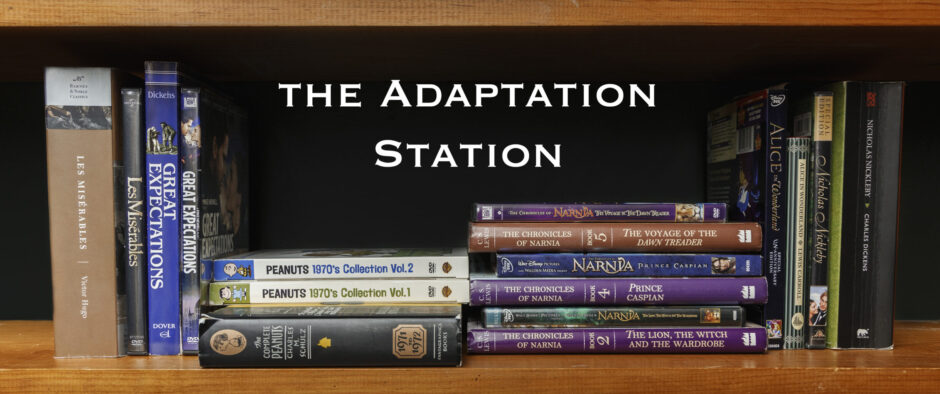One Final Attempt to Understand What Goes On in Your Head: Freaky Friday (2003)

Only eight years after the 1995 Freaky Friday, Disney released another remake, into cinemas this time, from director Mark Waters and screenwriters Leslie Dixon and Heather Hach. For most people, of my generation at least, this is The Freaky Friday. I’m not convinced it deserves that honor, but I can’t say I don’t see where the reputation came from.
If the 1995 version was a little too specific in its portrayal of the contrasting problems of youth and age and generational conflict, this one feels a little too generalized. The prickly relationship between Anna Coleman (Lindsay Lohan) and her widowed therapist mother, Tess (Jamie Lee Curtis) feels more like a stereotypical punk-teen-conservative-mother dynamic than the one between Annabel Andrews and Ellen. (How many rebellious adolescents would describe their mother, even in private, as “the most beautiful person in the world?”) And what’s more, the characters feel stereotypical in a very marketable way. Compared to Jodie Foster’s endearingly awkward, tomboyish Annabel, Lohan’s Anna looks very much like what kids and teens circa the early 2000s would consider cool and attractive-or, more accurately, what adults circa the early 2000s would think kids and teens would find cool and attractive. To be fair though, the character is sixteen rather than thirteen, so it makes sense for her to be more poised. (Her mother has likewise been aged up.) Her love interest, Jake (Chad Michael Murray) is also more like what one would expect a teenage girl to find attractive than appealingly dorky, adenoidal Boris was. And little brother Harry (Ryan Malgarini) is more like the stereotypical annoying younger sibling than “Ape Face.”
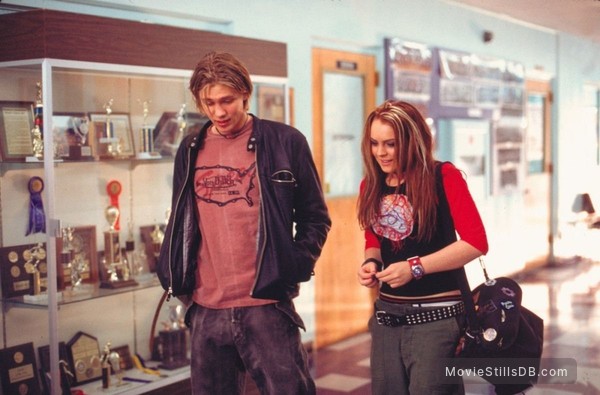


Of course, comedic stereotypes, including negatively portrayed adult authority figures, have always been a part of Freaky Friday. Honestly, I’d be disappointed to watch a movie with that title and not find some stock characterizations. But it becomes alarming when you to try to think of a character who isn’t a stereotype of some sort. The only candidates I could come up with are Tess’s fiancé, Ryan (Andrew Harmon) and Jake, who arguably is a subversion of the motorcycling bad boy stereotype. Some of the movie’s stereotypes work well enough, like the evil, twofaced popular high school girl (Julie Gonzalo) or the pathetically needy therapy patient. (Willie Garson) [1]Though I believe the movie would have been greatly improved dramatically if Anna had grown to sympathize with the latter and come to respect her mother’s work as a result. Others are irritating and borderline offensive, like the deaf senior citizen, who is always out of the loop, (Harold Gould), and the shrill, chattering Asian who works in a Chinese restaurant. (Rosalind Chao) [2]Though I admit the subtitled argument between the two Asian characters halfway through the movie is a guilty pleasure of mine.




The mention of that restaurant brings me to how this movie combines the body swapping methods of the original book (a mother figure with inexplicable supernatural powers) and the 1995 movie (a Chinese restaurant.) Anna and her mother go there on Thursday night and get into a heated fight [3]Happily, unlike in the 1995 Freaky Friday, their sparring is heated but never too nasty for a comedy. about a scheduling conflict between a once-in-a-lifetime audition for Anna’s garage band and the rehearsal dinner for Tess’s wedding. A mystical old Asian woman (Lucille Soong)(another stereotype) overhears and gives them prophetic fortune cookies, if I can say that without redundancy, which they open at the same time. As in the book, they awaken the next morning to discover their minds have been switched, rather than having it occur after Friday morning is well underway as in the last two movies.
The movie’s biggest asset is the two lead performances. It’s a shame I don’t have a better choice of screenshots to show off their marvelous facial expressions and body language. Lindsay Lohan gives easily the funniest and most convincing adult-in-a-child’s-body performance in any of these movies, bringing an air of fierce dignity to the role, and not even breaking a sweat. In the wackier role of child-in-an-adult’s-body, Jamie Lee Curtis also rises to the top of the pack despite stiffer competition from the other Freaky Fridays. A major inovation of this version is that mother and daughter are actively working together to find the cause of the switch and undo it throughout. This allows Curtis and Lohan to really develop a relationship between the characters and they play off each other really well. The bit where they quarrel over fast food is a highlight.


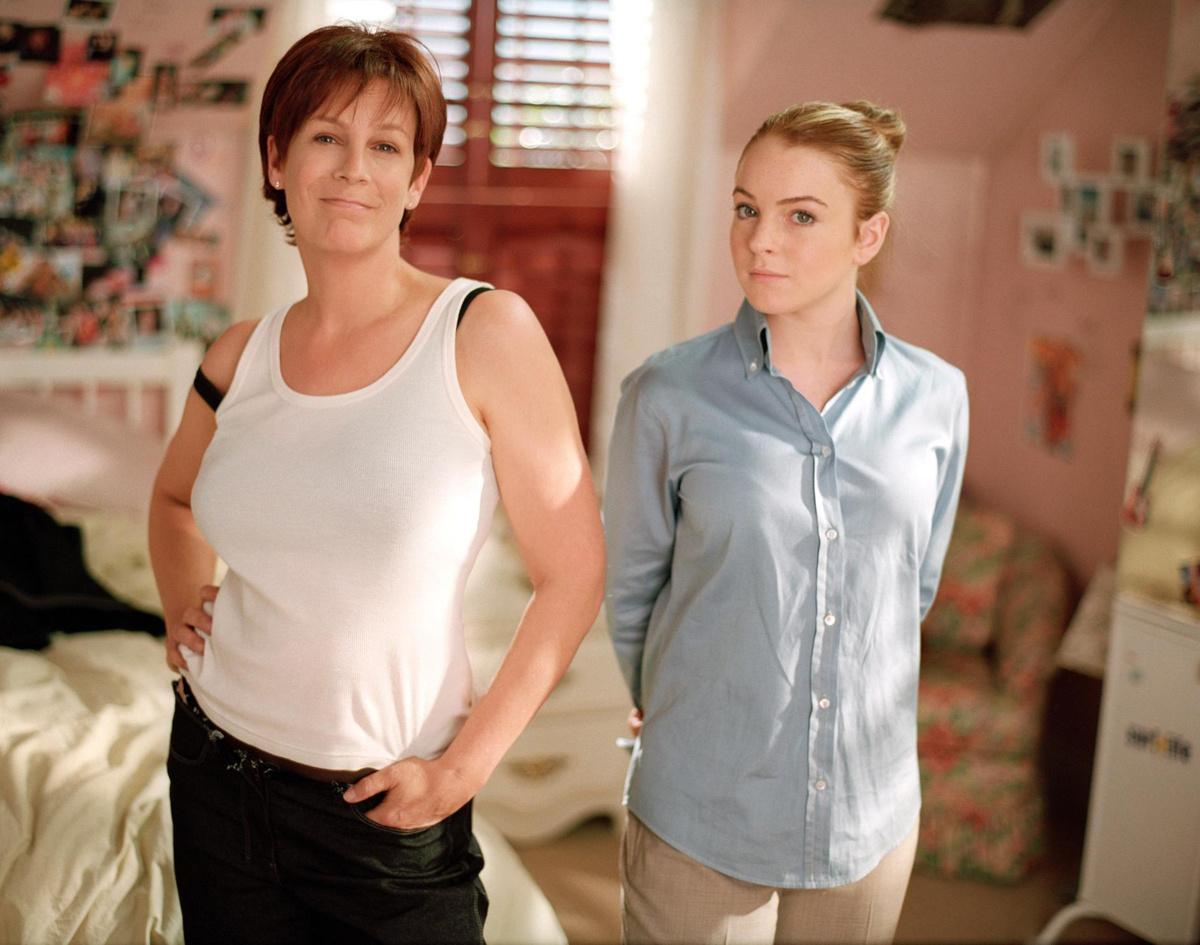
It’s amazing how this movie keeps repeating basically the same joke over and over again, of Anna or Tess doing something in the other’s body that would be inappropriate or out of character for them while the other characters look on in bafflement, without getting tired. This is especially so when you consider how the fantastic/comedic premise was nothing new at the time. In addition to the past Fridays, similar themed movies included 1987’s Like Father, Like Son and 1988’s Vice Versa. [4]The latter was a remake of a movie from 1948, which was adapted from a novel by F. Anstey from 1882! The two stellar lead performances have a lot to do with keeping it so engaging, but Waters deserves credit for his direction and Hach and Dixon for their script too. Even the dialogue for the aforementioned annoying stereotypes is amusing and while I may often be nonplussed by the movie when I watch it, I never get the urge to turn it off.
To paraphrase the 1976 Freaky Friday, this movie is a whole lot smarter than you’d hope and a whole lot dumber too. Its biggest flaw is how unbalanced it is in its treatment of mother and daughter. Tess finds that Anna’s problems at school, which she’d assumed to be her child’s own fault, are actually because of others and beyond Anna’s control. The problems in Tess’s life turn out to be either based on misunderstandings on her part or are easily blown off by her daughter. Anna doesn’t enjoy having to fill in for her mom at work, but she’s able to bluff her way through therapy sessions by repeating, “how do you feel about that?” And the one time she really interacts with a patient, her perspective as a teenager gives her insight the real Dr. Coleman wouldn’t have had. The biggest source of stress in Tess’s life seems to be her perpetually beeping pager, which Anna simply turns off and since, as the title dictates, the switch only lasts for a day, this never comes back to haunt her. We finally get a scene where it looks like Anna is going to be in some hot water when she unexpectedly has to go on a talk show to promote her mother’s new book. But this leads to the movie’s stupidest scene. After making a few stabs at impersonating her mother, Anna proclaims that the reason adults are frequently tired is that they worry about “stupid things” like cooking, cleaning and parenting. (That’s not the stupid part. That’s funny.) Tess, watching “herself” on TV, is humiliated, but every member of the studio audience, with the exception of bemused but supportive fiancé Ryan, cheers this sentiment. It even has the effect of endearing Anna to Jake albeit when she’s in the wrong body.
And this isn’t an isolated incident of everyone applauding the daughter except for her mother. In a complete inversion of the book and the original movie, Anna gives her dowdy mother’s body a stylish makeover. Tess is horrified but the other characters compliment her on the hot new look-including Ryan! There is one instance of Tess using her adult knowledge to do something Anna couldn’t in the scene where she stands up to a tyrannical English teacher. Unfortunately, it’s a scenario about as ridiculous as the talk show scene, but it’s such a rare win for the character that I can’t help but enjoy it. Tess’s worldview and perceptions of others are overturned at nearly every point. Anna, on the other hand, is forced to reevaluate her brother and her future stepfather and that’s pretty much it. [5]There is a funny moment when she realizes how hard it is be nearsighted, but this isn’t played for even implicit character development. Ostensibly, she starts to respect her mother late in the movie when Ryan praises her for always putting her kids first, but we sure don’t see any evidence of Tess actually doing this earlier. Anna also gets to enjoy some of the perks of adulthood, like a driver’s license and credit cards, but Tess never enjoys any advantages to being young again. [6]Well, except for the climax where she ends up enjoying filling in for her daughter at the musical audition. But this is presented as her learning to respect Anna’s music, not fulfilling any … Continue reading
The effect of all this is to make this Freaky Friday kid/teen pandering in a way none of the others are. It also limits the comedy of the daughter’s story since it’s less fun to when the character is never totally overwhelmed or receiving comeuppance of some sort. But the movie does end on a high note. The scene where “selfless love” restores Tess and Anna to their true forms is more powerful than it has a right to be, thanks to the sensitive direction and acting. Lohan and Curtis deserve some kind of award for their performances in that scene, the former for coming across as specifically an adult being emotionally vulnerable and self-sacrificing and Curtis for coming across as a child being the same. This makes for the most touching moment in any Freaky Friday movie, so much so that I’m willing to ignore the fact that it doesn’t make sense when you stop to think about it. And the addition of the mother’s wedding to the story does make for a nice finale as the different generations, which have had little use for each other throughout, come together at last to celebrate the same event.
If You Knew What I Go Through: Freaky Friday (2018)

This last Freaky Friday began life as an off Broadway stage musical written by Bridget Carpenter of TV’s Parenthood in 2016. She adapted her own work for this Disney Channel Original Movie. It was directed by Steve Carr, who, according to IMDB, has probably the least impressive resume of any Freaky Friday director, but let’s not get too cynical right away. This adaptation combines elements of the original book and the 2003 movie. [7]As in the 1995 version, the mom ends up having to attend a biology and a gym class as her daughter, but that one is so under the radar, I’m inclined to believe those similarities are a … Continue reading The inclusion of the dead father/husband from the latter gives a different resonance to a detail from the former never before included in an adaptation: the daughter’s (Cozi Zuehlsdorff) dislike of euphemisms for death like “passed on.” This mother, Katherine Blake (Heidi Blickenstaff, who played the part in the original play) is, like her most recent counterpart, about to be remarried. Instead of a therapist though, she’s a caterer who is doing her own wedding and is about to be subject of a cover story for a big magazine. Rather than an athletic or musical competition, as in the other movies, the big upcoming event in her daughter, Ellie ‘s life is a scavenger hunt. [8]Don’t ask me why the daughter now has the name of the original mother. After the somewhat lazy characterizations of the 2003 movie, that last adaptation choice feels refreshingly creative.
Another creative detail is how the heroines switch bodies. Instead of fortune cookies, necklaces or plain old Friday the thirteenth, the device used is a magical hourglass, which was a gift from Ellie’s dad. Katherine and Ellie express their mutual wish to trade places while both touching it on Friday morning and, of course, said wish is granted. [9]I guess that’s something the movie borrows from the 1976 version, but the connections between the book and the 2003 movie are much more prominent. This also leads to the hourglass breaking. Katherine once had a matching hourglass, but it’s been sold to an antique store. The goal of the characters, when they aren’t each dealing with the other’s responsibilities, is to track down this hourglass and restore themselves to normal before the wedding.

To its credit, the script makes smart decisions as to which elements to borrow from each previous variation of the story. This is arguably the only Freaky Friday in which both main characters have a character arc of equal depth and weight. [10]The mother in the 1976 movie certainly takes her licks and isn’t coddled like the 2003 daughter, but she lacks her daughter’s well designed arc, inherited from the source material, in … Continue reading A scene where Ellie in Katherine’s body breaks down because “everyone keeps asking me questions and I don’t know the right answers” is something the 2003 movie really could have used. But there’s also a feeling of too much borrowing and not enough originality. Maybe it’s less of a problem if you haven’t watched all the Freaky Friday movies in one week, but I couldn’t help notice how many scenes and jokes were variations of old ones. The writing is strong enough that they’re amusing variations, but I also can’t help thinking longingly of the 2003 Friday, which, for all my criticism of it, was able to come up with new jokes from the premise.
One obvious way in which this version does set itself apart from the others is in being a musical. Happily, the songs are a lot of fun and go someway to justify the existence of a new Freaky Friday, though the choreography is sadly nothing to boast about. In particular, Just One Day, an early song establishing the characters and their problems, is great, but isn’t helped by the accompanying dance steps. The lyrics describe how the conflicting interests and growing frustrations of different family members and the music conveys growing intensity and pressure (in an appropriately lighthearted way.) But the choreography looks far too smooth and, well, choreographed to express any of this.
Something else that arguably stands out about this Freaky Friday is that its the most family friendly movie with that title [11]Ironically, the original stage play was arguably the raciest thing to be called Freaky Friday. with none of the mildly adult humor of the 1976 and 2003 movies or the occasional swearing of the latter. I don’t entirely approve of this cleanliness myself, being foremost a fan of the book, which could be fairly adult in its content at times. But I guess I can also see the value of a Friday that parents can feel comfortable watching with their youngest children.
In the role of the body-swapped Ellie, Heidi Blickenstaff is hilarious. I wouldn’t say she gives Barabara Harris or Jamie Lee Curtis a run for their money, but she doesn’t disgrace herself beside them and she’s more fun than Shelley Long was in the corresponding role. [12]I don’t think she’s necessarily a better actress than Long. It has more to do with the 1995 Freaky Friday‘s script. This movie is usually at its most entertaining when she’s onscreen. A highlight is the scene where she has to demonstrate her mother’s planned wedding dance for the magazine reporter.
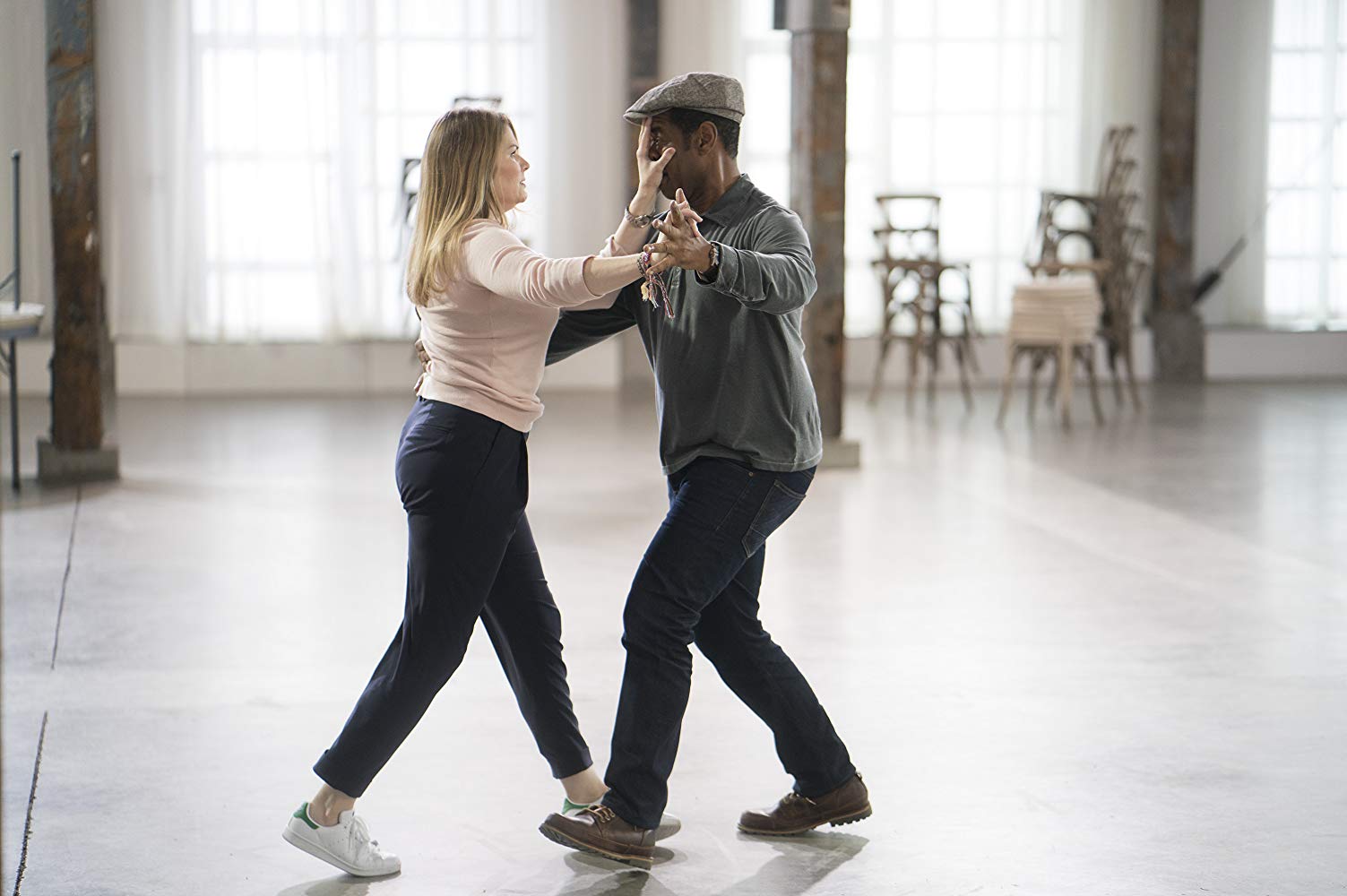
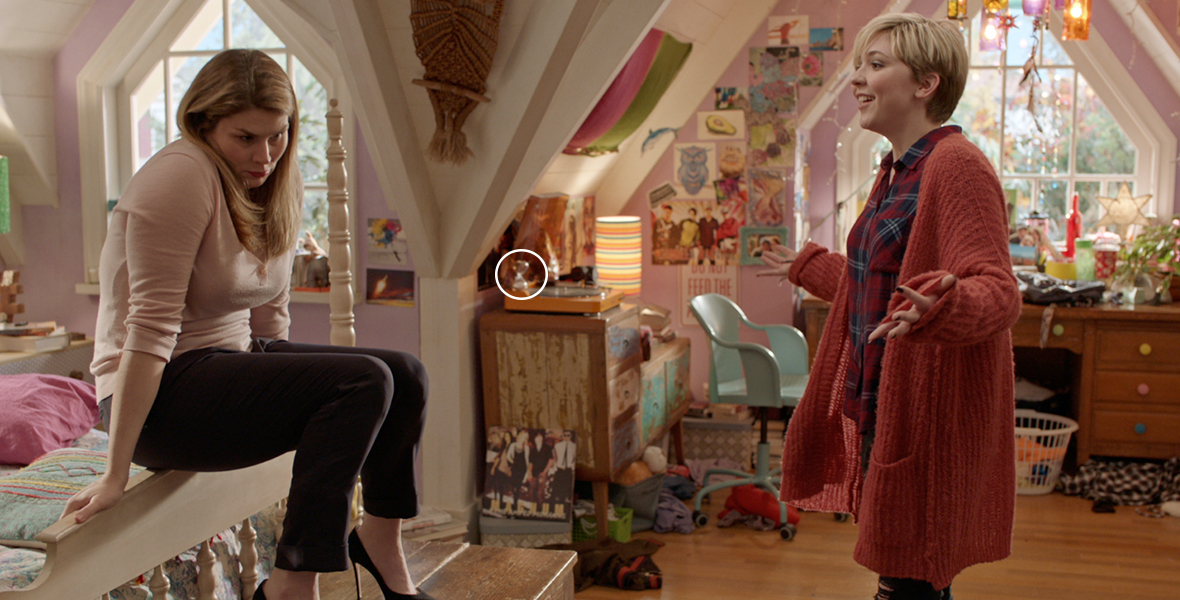
Cozi Zuehlsdorff regrettably gives the blandest portrayal of a mother in her daughter’s body in any of these films. [13]I note with some annoyance that she’s also noticeably thinner than the actress who originated the part on stage. Not saying that specific actress should have had the role here, but it’d … Continue readingWhich makes it frustrating how this movie is clearly trying to be more of a vehicle for her than for Blickenstaff. I’m particularly miffed that After All of This and Everything, a big emotional song for Blickenstaff, was cut while What It’s Like To Be Me and At Last It’s Me, the songs bookending the movie, were specifically written for Zuehlsdorff-and the last one is the movie’s weakest song! (After All of This and Everything was apparently cut because the director couldn’t figure out how to have the camera simply focus on the character sitting in a chair and singing to her brother for a whole song. If you’ve read my series on Les Misérables (2012), you know what I think of that.)


I’ve praised this Freaky Friday for giving both mother and daughter a well thought out character arc, but there’s a price to be paid for that. This is definitely the sappiest of the Friday movies. Now I don’t have a problem with sentiment. One of my favorite authors is Charles Dickens, for crying out loud. And the original book did have some very dramatic material which the first movie left out. But I prefer the way that book and all the movies, except for the 1995 one, start out as pure comedies, and somewhat cynical ones at that, before slowly beginning to introduce emotional elements around the halfway point. Here we get emotional moments as early as the second scene, where Ellie is hurt to find that her mother has sold a gift from her father and Katherine gently explains to her daughter that the family could lose their house if the big magazine cover story about her wedding doesn’t work out. During the movie’s last third or so, we keep getting bombarded with one emotional exchange or revelation after another, some much more effective than others, to the point where they stop having an impact. Still, at least this Freaky Friday‘s attempts at emphasizing drama aren’t as unpleasant as the 1995 movie’s were.
Conclusion
So which is the best Freaky Friday movie? My vote goes to…the 1976 one. I know that isn’t the majority opinion. The first Friday certainly is a very 70s movie and today’s viewers aren’t going to be drawn to it that much. [14]Though I’d argue all these movies are dated in their own ways. But while it doesn’t reach the heights of the 2003 FF, neither does it sink to its depths. Actually, a more accurate description would be that the 1976 movie is great for most of its runtime but has a dumb yet skippable climax and the 2003 movie blends the brilliant and the stupid throughout. The 1995 and 2018 versions are seldom particularly stupid or particularly brilliant. The 1976 adaptation also gets points from me for being the closest to the book, which is really the Freaky Friday I recommend people pick if they can only check out one. It’s a very fun read, breezy and quick but with surprising depth and nuance that rewards rereading.

References
| ↑1 | Though I believe the movie would have been greatly improved dramatically if Anna had grown to sympathize with the latter and come to respect her mother’s work as a result. |
|---|---|
| ↑2 | Though I admit the subtitled argument between the two Asian characters halfway through the movie is a guilty pleasure of mine. |
| ↑3 | Happily, unlike in the 1995 Freaky Friday, their sparring is heated but never too nasty for a comedy. |
| ↑4 | The latter was a remake of a movie from 1948, which was adapted from a novel by F. Anstey from 1882! |
| ↑5 | There is a funny moment when she realizes how hard it is be nearsighted, but this isn’t played for even implicit character development. |
| ↑6 | Well, except for the climax where she ends up enjoying filling in for her daughter at the musical audition. But this is presented as her learning to respect Anna’s music, not fulfilling any wishes of her own. To be fair to the movie, if there are any advantages to being a teenager, I’m sure they don’t involve high school. |
| ↑7 | As in the 1995 version, the mom ends up having to attend a biology and a gym class as her daughter, but that one is so under the radar, I’m inclined to believe those similarities are a coincidence. |
| ↑8 | Don’t ask me why the daughter now has the name of the original mother. |
| ↑9 | I guess that’s something the movie borrows from the 1976 version, but the connections between the book and the 2003 movie are much more prominent. |
| ↑10 | The mother in the 1976 movie certainly takes her licks and isn’t coddled like the 2003 daughter, but she lacks her daughter’s well designed arc, inherited from the source material, in which the mother’s character development was a subtext at the most. |
| ↑11 | Ironically, the original stage play was arguably the raciest thing to be called Freaky Friday. |
| ↑12 | I don’t think she’s necessarily a better actress than Long. It has more to do with the 1995 Freaky Friday‘s script. |
| ↑13 | I note with some annoyance that she’s also noticeably thinner than the actress who originated the part on stage. Not saying that specific actress should have had the role here, but it’d have been nice to see a chubbier girl in the lead. |
| ↑14 | Though I’d argue all these movies are dated in their own ways. |
